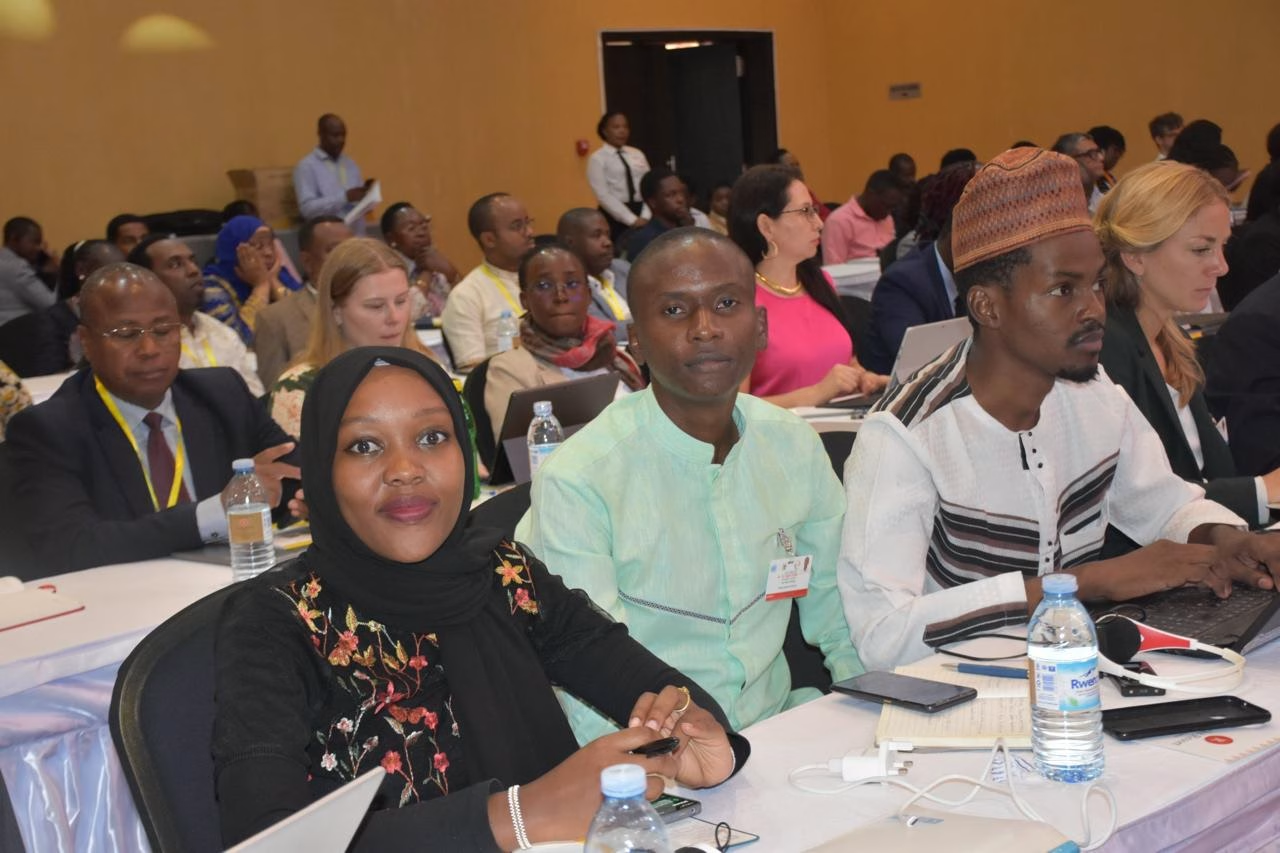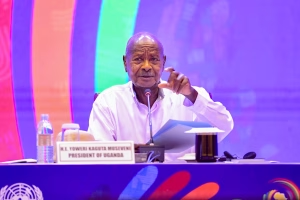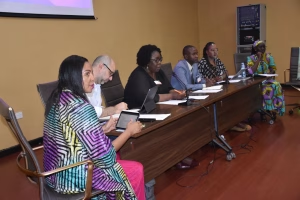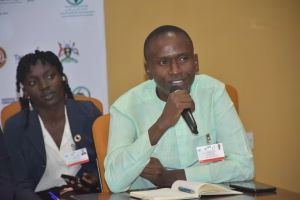
My Reflections from ARFSD11: Meaningful Youth Participation in Action
By Brian Kithinji, EU Youth Sounding Board member and the Executive Director of Policy Action Initiative
It is often said that there’s something about Kampala that never leaves you. If it is not the gentle hum of the city, then it is the fresh, flavorful food served in generous portions, or the vibrant energy of youths riding bodabodas through the narrow streets, or the unpredictable rainfall that briefly floods the city. One or the other, it is an experience that stays with you.
Returning to this city last week, the crown jewel of the Pearl of Africa, felt oddly familiar. I could trace the streets with my fingertips. The restaurants, the rhythms, the culture, almost everything. For the past three months, I’ve been studying at Makerere University, so the déjà vu made perfect sense. Adding to that was my memory of last year’s Tenth Session of the Africa Regional Forum on Sustainable Development (ARFSD) in Addis Ababa, Ethiopia.
But this year was different. This time, I returned not just to attend. I came to meaningfully engage, to represent youth perspectives, and to contribute to shaping solutions that work.
The Eleventh Session of ARFSD was held under the theme “Driving Job Creation and Economic Growth Through Sustainable, Inclusive, Science, and Evidence-Based Solutions for the 2030 Agenda and Agenda 2063.” And I was honored to serve as a panelist at two powerful side events, thanks to the support of SDGs Kenya Forum, FEMNET – African Women’s Development and Communication Network, and the European Union.
In the first session, organized by FEMNET, I joined gender advocates and policymakers to spotlight what inclusive climate action truly means for youth. I spoke passionately about how young people are disproportionately impacted by the climate crisis, and how they need not just financing, but the right kind of financing. One that prioritizes those most affected: young smallholder farmers, youth in urban informal settlements, pastoralist communities, and persons with disabilities.
As I said on that day, “Youths need money. Resilience does not begin in boardrooms; it starts at the grassroots.”
Brian Kithinji speaking during the 11th ARFSD
The second session, hosted by SDGs Kenya Forum, focused on youth inclusion in economic development. I emphasized that this inclusion must be intentional. We must move from lip service to lived realities through policy frameworks that create space for youth voices, investments in digital economies to unlock future jobs, and streamlined processes for financing and registering youth-led organizations so they can fully engage in governance and development.
But my ARFSD experience extended far beyond the sessions I spoke at. It was about the amazing people I met, the ideas I absorbed, and the networks I built. I connected with fellow youth champions, civil society leaders, UN policymakers, and African government officials. I was genuinely humbled when Hon. Jacqueline Amongin, Member of Parliament at the East African Legislative Assembly, walked up to me and said, “Congratulations for speaking so powerfully on youth interests.” That, for me, epitomized meaningful participation and the value of being part of the EU Youth Sounding Board.
I also had the opportunity to engage with Hon. Ayobangira Safari, a Member of Parliament from the Democratic Republic of Congo, who expressed strong interest in collaborating with the EU Youth Sounding Board to build the capacity of youth in North Kivu region, which he represents. I deepened ties with our counterparts in the EU YSB Uganda Chapter, and I’m hopeful that we’ll collaborate on joint initiatives in the coming months.
Throughout the week, I attended several side events that expanded my understanding of inclusive development. At the session on “Catalysing Jobs and Sustainable Livelihoods: Integrated Approaches for Inclusive Growth through Structural Transformation in Africa,” I learned the importance of multi-sectoral, systems-based strategies in addressing policy, institutional, and market-level barriers to job creation. I also challenged UNECA policymakers on the need to break silos. That true transformation demands collaboration across sectors, demographics, and stakeholder groups.
During the Regional Preparatory Workshop for African Voluntary National Reviews (VNRs) and Voluntary Local Reviews (VLRs), I gained practical insights into how countries can track progress and ensure accountability in implementing the SDGs. Meanwhile, the Sixth Africa Climate Talks challenged me to rethink dominant climate narratives, including the limitations of green bonds and debt-for-climate swaps as band-aid solutions to systemic challenges.

11th ARFSD opening session with Ugandan Head of State
Perhaps the most powerful moment was sitting in the opening plenary of ARFSD, in the same room as H.E. Yoweri Museveni, President of Uganda; H.E. Emmerson Mnangagwa, President of Zimbabwe; African ministers; UN agency leaders; grassroots organizers; and fellow youth. And there I was, a young Kenyan reviewing and providing input on the final outcomes document. If that’s not meaningful participation, what is?
In conclusion, ARFSD-11 reminded me that growth is not just measured in numbers, but in connections made, voices amplified, and actions inspired. My engagements at the forum are a perfect testimony that as youths we belong right here shaping the present. Let us strive for more opportunities to meaningfully engage!

Apanel discussion with META consortium members; Brian representing the EU YSB and CSO representatives
Photo Credits: © SDGs Kenya Forum


